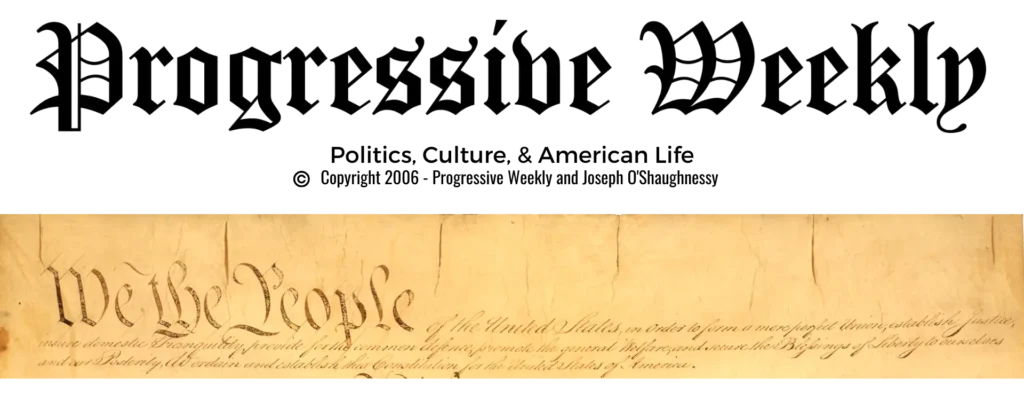We know what Bush would do in the first 100 days. We have a record of what he did. He took office on January 22, 2001.
On January 22, 2001, George W. Bush was looking forward to working with Senator Phil Gramm (remember him? He’s the guy who took off all regulations on private banking, causing our current financial crisis.) to push through a $1.6 trillion dollar tax cut.
Or, another way of saying it, they were looking forward to working on what we now know turned out to be a $1.6 trillion reduction in federal revenues. Knowing that it would put a big hole in the budget, Phil Gramm and co-sponsor Senator Zell Miller of Georgia nevertheless portrayed it as a windfall, an incentive that would make the economy blossom. By the way, did you notice that name…Zell Miller? Remember him? He was the “Democrat” who became Governor of Georgia after he left the Senate. He was the keynote speaker at the 2004 Republican convention. Zell, either a turncoat or a Republican leave-behind spy, was a guy who could sit in on all the Democratic meetings. Then he could run to Dick Cheney’s house to feed him all the Democratic proposals.
Here’s what Phil Gramm said, as reported in the NEW YORK TIMES, would happen:
“Mr. Gramm said that Republicans now expected the federal budget surplus for the next decade to be roughly $5.6 trillion, of which about $2.9 trillion would come from outside the Social Security program. The two parties have agreed not to use the part of the surplus generated by Social Security for tax cuts or new spending.
Mr. Miller, whose support could be critical to Republicans as they seek to steer the tax cut through a Senate split 50-50 between the two parties, was unapologetic for breaking with his party over Mr. Bush’s plan.
‘Right now, our taxes have never been higher,’ Mr. Miller said. ‘Right now, our surplus has never been greater. To me it’s just plain common sense that you deal with the first by using the second.’ ”
Actually, our taxes had been higher, much higher, and our lifestyles much better. Yes, they were higher than when Reagan came in but Reagan eventually had to raise more taxes than he cut. Then George Bush the First had to raise them again because the government was still going broke.
But after Clinton gave the Republican Congress credit for cutting back while he pushed a Liberal agenda, we had a surplus. Having that surplus and not having it in the pockets of rich Republicans was too much for Mr. Miller, the turncoat Democrat. And Senator Gramm? Well, a surplus of $5.6 trillion in the next decade? In his heart of hearts he could not keep all that money from his rich oil patch supporters. A surplus? No. He told an outright lie.
That was day one of the era of Bush the Second. That was how it started. Tax cuts for the rich, and more tax cuts for the rich…so many that the Treasury Secretary, Paul O’Neill, enormously wealthy himself, which is probably why they trusted to bring him into the Cabinet, got fed up and resigned. They forgot that he was one of the most efficient and competent CEOs ever, and he saw that the tax cuts were going to bankrupt the country. So they let him go, or pushed him out…whatever. It only got worse from there.
The problem is that despite all the talk of surpluses, the Republicans never stopped spending. They never had any intention of creating surpluses. They spent like the Hollywood celebrities they claimed to detest and left us with an $11 trillion debt. But more than that, their tradition of greed and corruption carried over to the financial community. Their inattention to an undisciplined, chaotic Wall Street left the country with a catastrophic economic situation, with unemployment increasing by five million already and, despite a huge stimulus in place, still showing no signs of letting up.
What would George do? He’d probably cut taxes again. That’s what the rich, Right Wing Republicans are proposing right now–again. They never learn. Let’s hope the American people have learned.
